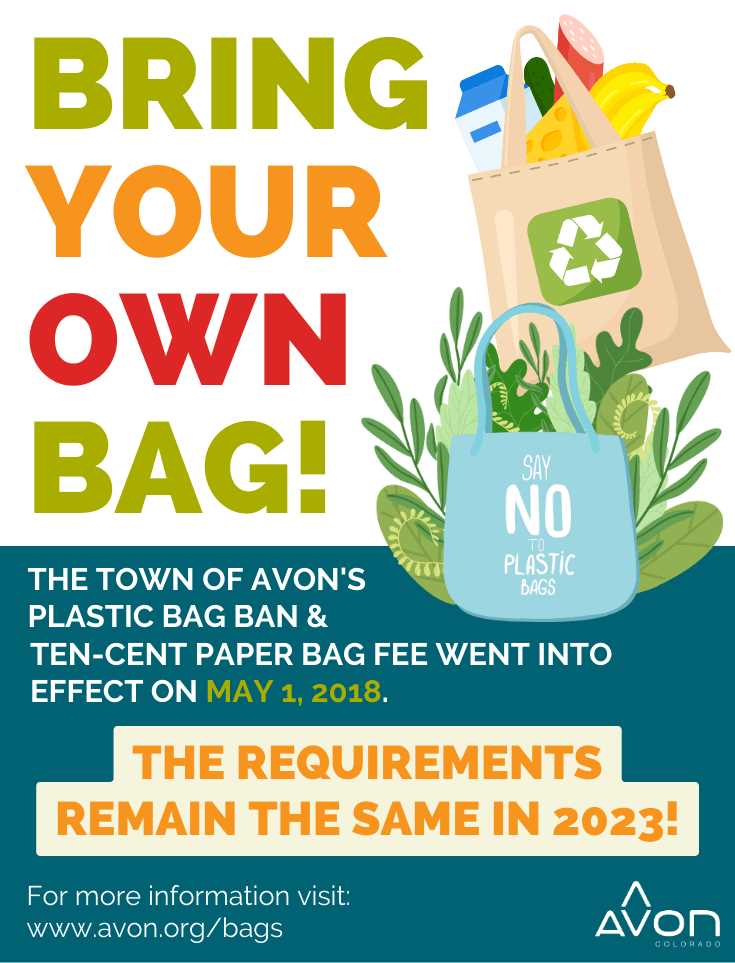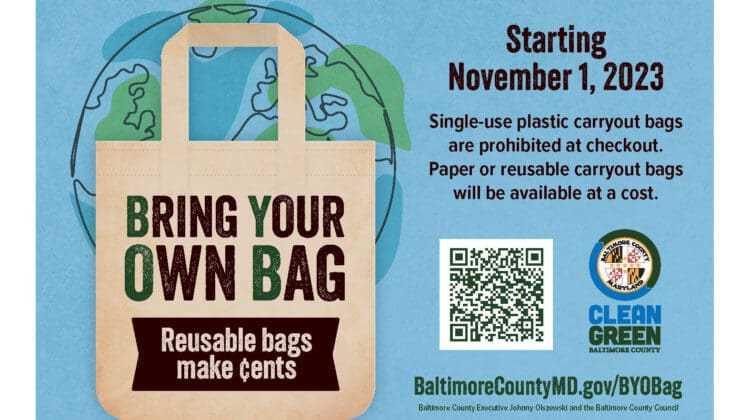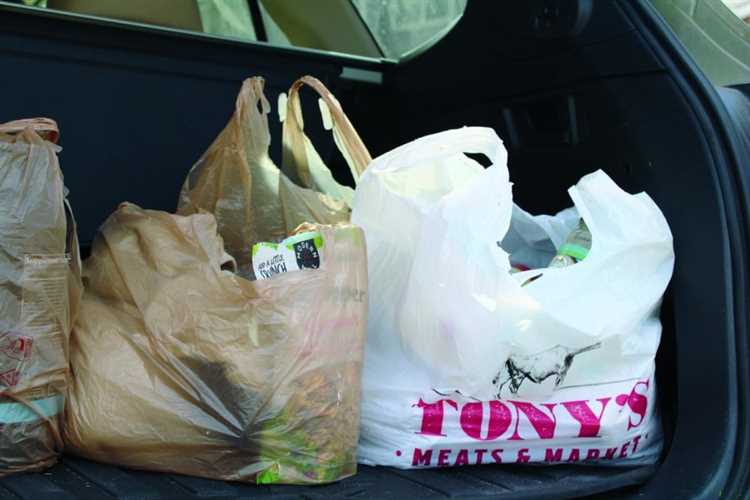Starting in 2023, a new bag law will come into effect, imposing significant changes on the way we use and dispose of plastic bags.
Plastic bags have long been a staple in our daily lives, providing convenience and ease when it comes to carrying our groceries, clothes, and other everyday items. However, the environmental impact of these bags cannot be ignored. They contribute to pollution, harm wildlife, and take hundreds of years to decompose. As a result, governments around the world have been implementing laws and regulations to reduce the use of plastic bags and encourage more sustainable alternatives.
The 2023 bag law aims to further address this issue by implementing stricter guidelines and penalties for the use of plastic bags.
One of the key changes brought about by this law is the ban on single-use plastic bags in most retail establishments. This means that customers will no longer be able to receive plastic bags for their purchases at the checkout counter. Instead, they will need to bring their own reusable bags or purchase eco-friendly alternatives, such as paper or cloth bags.
Furthermore, the 2023 bag law encourages retailers to charge a small fee for each bag provided, regardless of the material. This fee serves as an additional incentive for consumers to bring their own bags and reduces the overall consumption of bags.
It is important to note that certain exemptions may apply to this bag law, such as providing plastic bags for certain perishable or non-packaged items to maintain hygiene and prevent contamination. However, these exemptions will be strictly regulated to ensure they are necessary and justified.
The 2023 bag law is expected to have a significant impact on the environment, reducing plastic waste and encouraging a shift towards more sustainable practices.
By being aware of the key provisions and impact of the bag law, individuals and businesses alike can prepare for the upcoming changes and embrace alternative solutions for carrying their daily essentials. Together, we can contribute to a cleaner and greener future.
- Overview of the 2023 Bag Law
- Key Features of the 2023 Bag Law
- Impact of the 2023 Bag Law
- Key Provisions of the 2023 Bag Law
- Implications for Businesses and Consumers
- Businesses:
- Consumers:
- Environmental Benefits of the Bag Law
- 1. Reduction in Plastic Waste
- 2. Decreased Pollution
- Enforcement and Penalties
- Question-Answer:
- What is the 2023 Bag Law?
- When does the 2023 Bag Law go into effect?
- What are the key provisions of the 2023 Bag Law?
- How will the 2023 Bag Law impact consumers?
- What are the potential environmental benefits of the 2023 Bag Law?
- How will the 2023 Bag Law impact consumers?
Overview of the 2023 Bag Law
The 2023 Bag Law is a new legislation that aims to reduce plastic waste and promote sustainable practices in the use of bags. The law will require retailers to charge a fee for single-use plastic bags and encourage the use of reusable bags. This law is a significant step towards reducing the environmental impact of plastic bags and promoting a greener future.
Key Features of the 2023 Bag Law

1. Bag Fee: Under the 2023 Bag Law, retailers will be required to charge a fee for each single-use plastic bag provided to customers. This fee will act as an incentive for customers to bring their own reusable bags and discourage the use of single-use plastic bags.
2. Reusable Bags: The law strongly encourages the use of reusable bags as an alternative to single-use plastic bags. Retailers will be encouraged to provide reusable bags for purchase, and customers are encouraged to bring their own reusable bags when shopping.
Impact of the 2023 Bag Law
The 2023 Bag Law is expected to have several positive impacts on the environment. By reducing the use of single-use plastic bags, the law will decrease the amount of plastic waste that ends up in landfills and pollutes our oceans. It will also promote a shift towards sustainable practices and encourage consumers to make more conscious choices when it comes to their shopping habits. Overall, the law will contribute to a more environmentally-friendly future for generations to come.
Key Provisions of the 2023 Bag Law

The 2023 Bag Law includes several important provisions that aim to reduce plastic waste and promote sustainable practices. These provisions include:
| Provision | Description |
|---|---|
| Plastic Bag Ban | The law prohibits the use of single-use plastic bags in all retail stores and grocery outlets. Customers are encouraged to bring their own reusable bags or choose paper bags at an additional cost. |
| Paper Bag Fee | Retailers will charge a fee for each paper bag provided to customers. This fee is implemented to encourage the use of reusable bags and reduce paper waste. |
| Reusable Bag Promotion | Retailers are mandated to promote the use of reusable bags by displaying them prominently, offering discounts or incentives for customers who bring their own bags, and providing information on the environmental benefits of reusable bags. |
| Plastic Bag Recycling | While the law focuses on reducing plastic bag usage, it also encourages proper disposal of plastic bags through recycling programs. Retailers are required to provide convenient collection points for customers to return their used plastic bags for recycling. |
| Education and Outreach | The 2023 Bag Law emphasizes the importance of public education and outreach. The government will launch campaigns and initiatives to raise awareness about the environmental impact of single-use bags and educate the public on sustainable alternatives. |
By implementing these key provisions, the 2023 Bag Law aims to encourage behavioral changes among consumers and businesses, promote the use of sustainable alternatives to single-use bags, and reduce the overall amount of plastic waste in our environment.
Implications for Businesses and Consumers
The 2023 Bag Law is expected to have significant implications for both businesses and consumers. Here’s what you need to know:
Businesses:
1. Increased Costs: With the implementation of the bag ban, businesses will need to find alternative packaging solutions, which may come at a higher cost. This will impact their bottom line and may be especially burdensome for small businesses with limited budgets.
2. Operational Changes: To comply with the new law, businesses will need to make operational changes, such as training staff to inform customers about the bag ban, sourcing alternative packaging materials, and ensuring compliance with the regulations. These changes may require additional resources and time.
3. Consumer Response: Businesses may face challenges in managing consumer response to the bag ban. Some customers may be resistant to change and may choose not to shop at businesses that do not provide bags. This could result in a loss of business for some establishments.
Consumers:
1. Behavior Change: Under the bag ban, consumers will need to change their behavior and bring their own reusable bags when shopping. This may require a shift in habits and routines, as well as remembering to bring bags when heading out for shopping.
2. Environmental Impact: The bag ban aims to reduce the use of single-use plastic bags, which will have a positive impact on the environment. By using reusable bags, consumers can contribute to reducing plastic waste and protecting ecosystems.
3. Convenience and Adaptation: While the bag ban may initially be seen as an inconvenience, consumers will have an opportunity to adapt and embrace new habits. Many reusable bags are durable and can hold more items than single-use bags, offering added convenience for consumers.
Overall, the 2023 Bag Law will require businesses and consumers to make adjustments and adapt to new practices. While it may come with some challenges, the long-term benefits for the environment make it a necessary step towards sustainability.
Environmental Benefits of the Bag Law
The implementation of the 2023 Bag Law will bring about several significant environmental benefits. By reducing the consumption of single-use plastic bags, the law aims to decrease pollution and protect our ecosystems.
1. Reduction in Plastic Waste
One of the main environmental benefits of the bag law is the reduction in plastic waste. Every year, billions of plastic bags are used and discarded, ending up in landfills or polluting our waterways. These bags take hundreds of years to decompose, leading to long-term environmental damage. By encouraging the use of reusable bags and limiting the distribution of single-use plastic bags, the law will help to reduce the amount of plastic waste generated.
2. Decreased Pollution

Another significant benefit of the bag law is the decreased pollution it will bring. Single-use plastic bags often end up as litter, polluting our streets, parks, and natural areas. They can also pose a threat to wildlife, as animals may mistake them for food or become entangled in them. By reducing the use of these bags, we can significantly decrease pollution and protect our wildlife.
Furthermore, plastic bags are made from non-renewable resources, such as fossil fuels. By reducing our reliance on these bags, we can help conserve these valuable resources and reduce carbon emissions associated with their production.
Overall, the implementation of the 2023 Bag Law will have significant environmental benefits, including the reduction in plastic waste, decreased pollution, and conservation of non-renewable resources. By making a conscious effort to use reusable bags and reduce our reliance on single-use plastics, we can all contribute to a cleaner and more sustainable future.
Enforcement and Penalties
The enforcement of the 2023 Bag Law will be carried out by local authorities and government agencies responsible for waste management and environmental protection. These entities will be tasked with overseeing compliance with the law and ensuring that retailers, businesses, and individuals are adhering to the regulations.
If a retailer is found to be in violation of the bag law, they may face penalties and fines. The exact penalties will vary depending on the local jurisdiction and the severity of the violation. In some cases, retailers may receive a warning for a first offense, but subsequent violations may result in fines that increase in amount. Repeat offenders may face the suspension or revocation of their business license.
Individuals who fail to comply with the bag law may also face consequences. In some areas, individuals may be warned for a first offense, but subsequent violations could result in fines. The amount of the fine may vary and may increase with each subsequent violation.
It is important for retailers and individuals to familiarize themselves with the specific regulations and requirements of the bag law in their local area to avoid potential penalties. It is also advisable to stay up to date with any changes or updates to the law that may occur in the future.
Question-Answer:
What is the 2023 Bag Law?
The 2023 Bag Law is a legislation that aims to reduce plastic waste by restricting the use of single-use plastic bags.
When does the 2023 Bag Law go into effect?
The 2023 Bag Law will go into effect on January 1, 2023.
What are the key provisions of the 2023 Bag Law?
The key provisions of the 2023 Bag Law include a ban on single-use plastic bags, a requirement for retailers to charge a fee for paper bags, and exemptions for certain types of bags like those used for bulk items or prescription drugs.
How will the 2023 Bag Law impact consumers?
The 2023 Bag Law will impact consumers by promoting the use of reusable bags, reducing plastic waste, and potentially increasing the cost of purchasing bags at retail stores.
What are the potential environmental benefits of the 2023 Bag Law?
The potential environmental benefits of the 2023 Bag Law include a reduction in plastic pollution, fewer plastic bags ending up in landfills, and less harm to marine life.
How will the 2023 Bag Law impact consumers?
The 2023 Bag Law will have a significant impact on consumers. It will require retailers to charge a fee for each single-use bag that is given to customers. This means that consumers will have to pay for the bags they use when they shop. The law aims to reduce the use of single-use bags and encourage consumers to bring their own reusable bags.